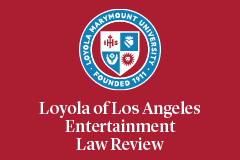Abstract
Since the turn of the twenty-first century, technology has progressed at an astounding rate, completely restructuring the way we live, work, and play. The advent of handheld Internet-capable devices such as iPhones and Blackberries has enabled information to be quickly found at our fingertips. However, this instantaneous Internet access has created some dire consequences for the American legal system, as mistrials across the nation are being declared due to juror misconduct via online activity. Using cellular phones and other Internet-capable devices, jurors are now researching and posting blogs on the Internet or updating their Facebook and Twitter statuses with information about the trials on which they serve. Such behavior directly violates judges' orders not to communicate with outside parties while serving on a jury, and can therefore trigger a mistrial. This Comment equates jurors' Internet use with misconduct in a jury trial, and argues that rather than classifying such behavior as a novel issue, it should instead be analyzed in accordance with the well-established framework of traditional forms of juror misconduct. It further discusses several solutions adopted in different jurisdictions that can potentially curb such modem misconduct, therefore preserving a criminal defendant's constitutional right to a fair and impartial jury trial.
Recommended Citation
Amanda McGee,
Juror Misconduct in The Twenty-First Century: The Prevalence of The Internet and Its Effect on American Courtrooms,
30 Loy. L.A. Ent. L. Rev. 301
(2010).
Available at: https://digitalcommons.lmu.edu/elr/vol30/iss2/3



